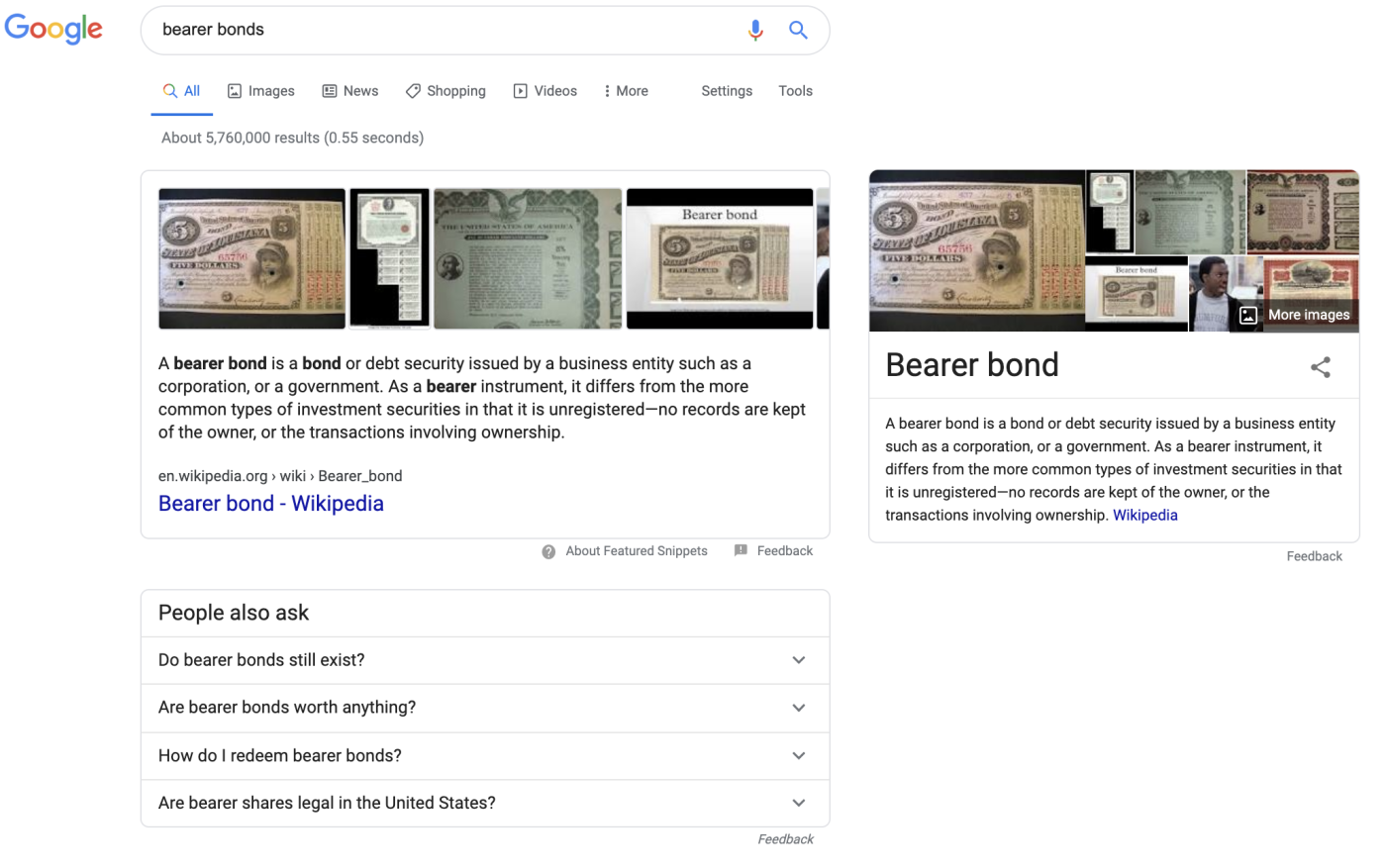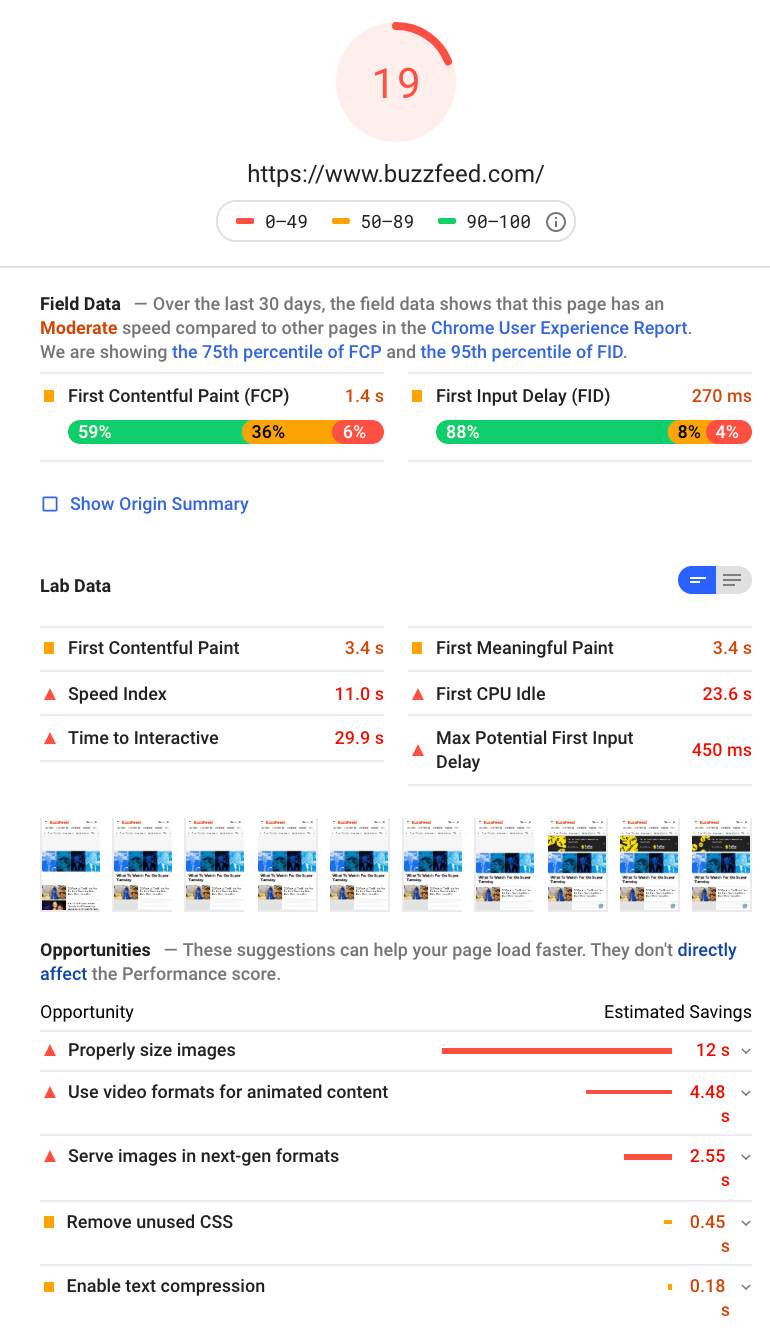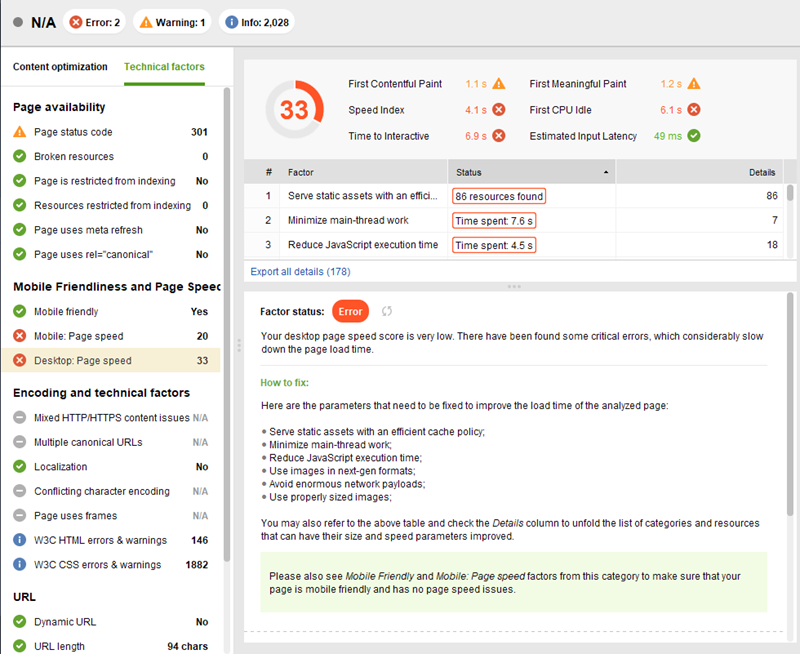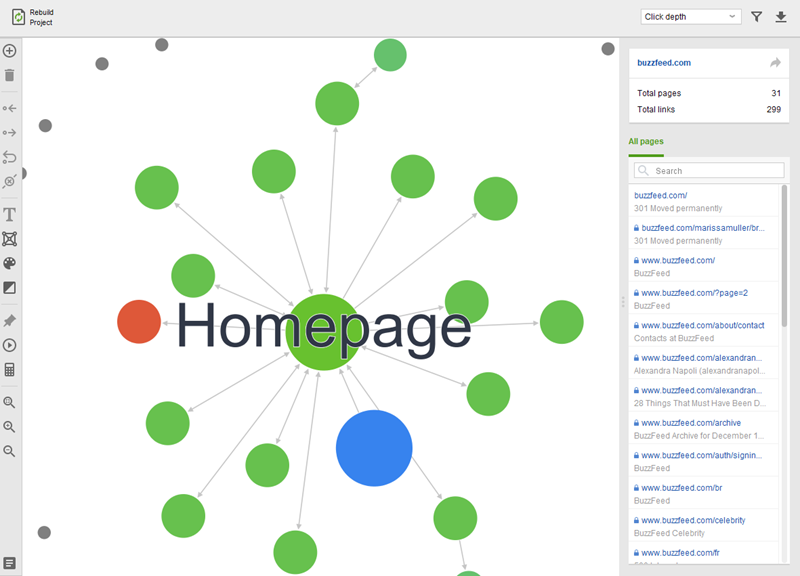Google's search algorithms—that's right, algorithms plural—are terrifying. Not only are there more ranking factors than you can count, but they're also constantly changing. And I know first-hand that it's tough to even properly discern between actual ranking factors and simple SEO superstition.
But there are some SEO factors that are generally consistent—and that you can actually do something about.
1. Content matching search intent
You've heard it a lot—but for a reason: content is king. But it only reigns supreme when it lines up with what people are looking for. And that's why search intent is the most important page-level ranking factor. When creating content for SEO, it's the first thing you should think about.
Keywords themselves are important, but behind those keywords, you need a foundation built on an understanding of your target audience. What is your audience really searching for?
Here's the thing: Google doesn't just want to give searchers results that have a certain keyword in there. They want to give you the results you need. To figure this out, they break up your searches into four categories.
Informational queries (e.g., smartphone features)
Navigational queries (e.g., phoneworld.com)
Comparison queries (e.g., samsung vs iphone)
Commercial queries (e.g., Motorola buy)
The idea is that you need to know the intent of people searching and create content that matches it. Is your audience looking for information? Exploring options? Ready to buy something? There's a simple way to figure it out: do a Google search for whatever you're hoping to rank for. What do you see? If the results page is filled with A-to-Z guides and how-tos, that means that keyword is taken to have informational intent, so you likely won't have much luck ranking for that with your product page. Instead, your best bet is to create an informational content page on the topic instead—and from there, you can link to your product page.
Put simply: a product page for a dishwasher isn't going to rank for a search for "Einstein birthday," no matter how much you stuff those keywords in. (To be fair, I haven't tried this, but it's an educated guess.)
2. Page format
Of course, a page is more than its contents. Google can read the format of your page, and it wants to be sure that it's bringing users to the kind of format that works for them.
When you Google your keywords, is there a featured snippet? If so, that will give you an idea of the kind of structure that Google values for that particular search topic. To get into those results, you'll need to use structured data on your pages.

Similarly, if you type your target keyword into Google and get an image pack (that row of images across the top of the search), that means images are valued for that search. You'll want to compress your images and add appropriate alt text and descriptions for each one to tell the search engine about the contents of the image.
What if your search leads to a local pack (the box that has information about a local business)? To get into that local pack, you'll need a Google My Business page with an address filled out. You'll also need to capitalize on user reviews and use Google posts.
Bottom line: while the content of your page is the most important, Google, being a computer and all, is also looking at the structure of your page, so one big block of text—even if it's the right text—won't always get you where you want to be.
3. Page speed
People's patience for a slow-loading website is basically zero. But it's not just about users clicking away because they don't want to wait three seconds for your page to load: page speed is also a Google ranking factor.
Start by assessing how well your website performs. You can test your page speed using Google's PageSpeed Insights without leaving your browser.

If you have more resources to devote to it, though, an app like the one I created, WebSite Auditor, can give you a comprehensive audit, where you see all of your technical hangups, 404 issues, the works.

Either way, you'll get the data on what you need to adjust to speed up your pages. It might be compressing images, tweaking your mobile version, or anything in between. Once you make those page speed changes, Google should start ranking you higher.
4. Backlink diversity and authority
SERP ranking is also affected by how your site appears on other pages.
The most important thing about backlinks (links to your site from other sites) is that you want them to be diverse. The more domains that link back to your pages and content, the more you signal to Google that your pages are the best result to show the user. Of course, you need to make sure the backlinks you do get are authoritative; that is, it's real people linking back to you because of the content you've created. Google is a wizard when it comes to identifying so-called "spam networks" and will penalize your rankings if you just add links to another site en masse.
One of the best ways to build a solid backlink profile is by performing some competitor research or referral research to find websites in your business niche that might link to your site. Once you've done that, you should start to build a relationship with those sites to secure a backlink—and maybe a long-lasting partnership while you're at it.
To find and disavow spammy backlinks, as well as to evaluate your backlink profile in general, you can use a backlink checker (I created SEO SpyGlass for this purpose). A professional tool will give you comprehensive information on the backlink profile of your domain, complete with link authority, anchor texts, and more.
5. Internal linking strategy
Once you've worked on your backlink strategy, you can support its success with strategic internal linking.
Let's say there's one page of your website that has a number of authoritative backlinks to it, but you have another, less successful page that you want to promote. You'll need to be sure to link to that less successful page from the higher-performing page.

In general, if you construct your internal linking to have your link authority flow from one page to another, you should be able to bump the rankings of more pages on your site. And if you desperately need to help a page out, go for the nuclear option: link to it from your home page.
6. E-A-T factors
E-A-T stands for expertise, authority, and trustworthiness. And it's complicated, to say the least. Some experts will tell you it's the thing to make you rank higher. Others will say it's not worth your time.
I argue that the truth is somewhere in the middle. Here's the thing: E-A-T isn't a single factor you can work on—it's an entire category that covers a whole lot of other parameters. E-A-T includes high-quality content, backlink authority, and security, along with more speculative factors like author expertise.
But even those "speculative" factors could become real ranking factors at any point since Google loves changing up its algorithms. Plus, optimizing for those E-A-T factors not explicitly mentioned by Google could yield enormous benefits for user experience anyway.
There are a few easy ways to tackle some E-A-T factors.
Include author profile pages on your blog that list authors' expertise and credentials.
Always cite your sources when making claims, and be sure you're using authoritative sources.
Include a Terms and Conditions page that's been reviewed by a lawyer.
Include a Contact section on your website so that it's clear you're a real person and so people can get in touch with you for transparency's sake.
There's an always-growing, always-changing list of factors to take into account when trying to get your page to rank on Google. And depending on who you ask, you'll get wildly different answers about how to address them:
Google: "Just be a good website!" The SEO industry: "Here are seven billion things you need to do!"
Neither of those is super helpful, and both are exhausting. Instead, focus on the high-priority things that you can easily control. Once you start seeing your rankings improve, you can dig deeper.
Read more: How will AI change SEO?
This was a guest post from Aleh Barysevich, Founder and Chief Marketing Officer at companies behind SEO PowerSuite, professional software for full-cycle SEO campaigns, and Awario, a social media monitoring app. He is a seasoned SEO and social media expert and speaker at major industry conferences, including 2018's SMX London, BrightonSEO, and SMX East. Want to see your work on the Zapier blog? Check out our guidelines and get in touch.





